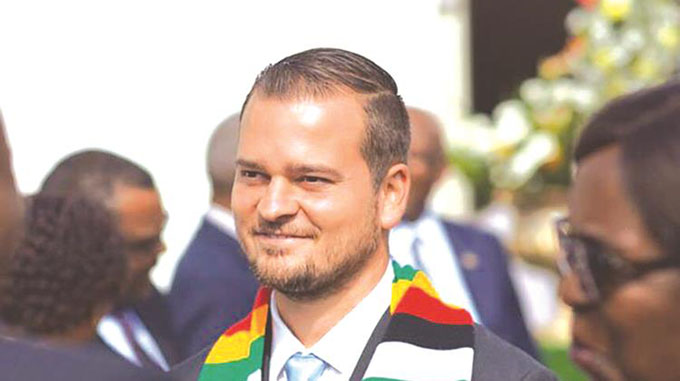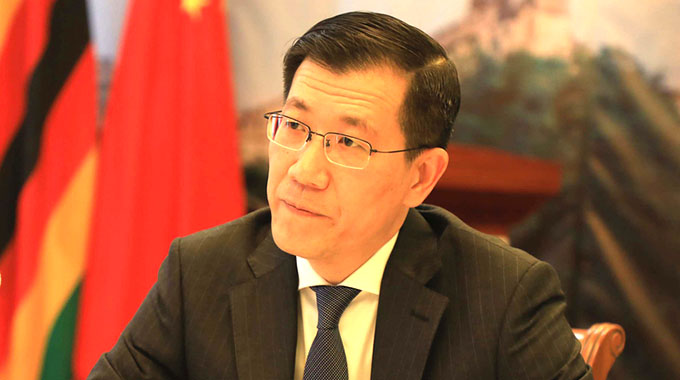Ideological strife in ‘The Last of the Empire’

Elliot Ziwira At the Bookstore
OUSMANE Sembene’s “The Last of the Empire” (1981) remains one of the most revealing repertoires of the challenges bedevilling the post-colonial nation state in Africa.
A timeless recollection of the colonial journey and its aftermaths culminating in political independence and its new challenges, the novel is as thrilling as it is evocative and thought-provoking.
With the post-colonial nation state grappling to keep a hold on nationhood in the face of new and old salvoes from the erstwhile colonial master, the search for ideal governance models to placate both the masses and the Empire leaves the leadership in a quandary. Juggling between politics and the economy, the leadership of the newly independent fictional state of Senegal led by Leon Mignane, The Venerable One, detaches itself from the people.
As politics takes precedence over the economy, the people’s patience begins to wane as they realise that they are being taken for a ride. The elite, with Mignane’s support, become indecently rich as the majority wallow in abject poverty. Probably Fanon (1967) has a strong point when he submits: “The people come to understand that wealth is not the fruit of labour, but the result of organised, protected robbery. Rich people are no longer respectable people; they are nothing more than flesh-eating animals, jackals and vultures which wallow in the people’s blood.”
There will always come a time that the dialectical forces keeping the people apart will come to a cirque, which makes it possible for them to cast their individual differences to fight for the common good. According to Marx the people will at some point put their differences together and make a point about the way they are governed. But there is a danger that the people can also be used to pursue individual nefarious interests believing them to be for their own good.
There should be open debate on the way policies are implemented, because in the absence of free debate, which is usually the case in the post-colonial state where the leader centralises power as what happens in “The Last of the Empire” (1981), the people are likely to vent their bottled anger through revolt.
Events leading to the disappearance of Leon Mignane after 20 years of dictatorial rule reveal the impatience, despondency, disillusionment and frustration that grip the masses, especially the youths. What they only want is inspiration and a rallying point for them to put a halt to the madness by “a set of individuals engaged in legalised plunder of the national economy, who constitute a privileged elite”, as Doyen Cheikh Tidiane says.
In this madness, where politics takes centre stage, the caste of corrupt looters, who mismanage national affairs, while masquerading as ministers decide to pamper the senile Leon Mignane with a Boeing plane worth “three thousand million and some” through a loan when the people wallow in poverty.
To the chagrin of his fellow ministers the Doyen reprimands: “A period of drought is not the time to indulge in such an expensive toy. Not only is the price high, there is interest to pay as well. Who will endorse this loan? The state, on behalf of our impoverished people? Such a gift, at a time like this, is a misappropriation of public funds.”
Such misplaced priorities, such wanton disregard of the suffering masses, such selfishness at the core of the post-colonial nation state, are ingredients for calamity. The Doyen’s speech on the dangers of dictatorial tendencies, avarice and corruption at the core of the new generation of leaders stirs a hornets’ nest and prepares the people for mutiny.
He rants: “They came to power with empty hands, but privileged through their education. They soon constituted a gentry that rapidly grew rich on public funds, making populist speeches to conceal their embezzlements . . . This younger generation is more corrupt, and ten times wealthier, than the small pre-independence political groups.”
With the people already in combative mood, the disappearance of Leon Mignane exposes the fissures in both government and the constitution. The dialectical tensions that have always been the order of the day, with the Doyen, Mam Lat Soukabe and Daouda as protagonists, heighten, leading to an ugly power tiff that culminates in the publication of a leaflet: “‘How to rob the nation legally’ was discussed everywhere. Its content, revealing corruption, nepotism, embezzlement and squandering of public funds, was greeted with indignation. The information was so precise that no reader could remain indifferent.”
Such revelations stoke the anger of a people who are already: “Crushed by taxes; crushed by levies on wretched salaries, while living in crowded unhealthy slums; . . . crushed by the insolence of technocrats and executives riding past in luxury cars with their wives, while their children, maids or stewards were driven to school or markets in official cars; crushed by want . . . by lack of schools, hospitals, dispensaries, maternity clinics, while luxury villas were being built for the ruling class; crushed by unemployment; crushed by the need to educate their children, the people were ready to heed such a leaflet.”
Mam Lat Soukabe, playing the caste card on Daouda, and positioning himself for the big haul, rubbishes the constitution that makes it clear that the prime minister takes over in the event of the president’s incapacitation or death, thundering: “The presidency isn’t a piece of property to be handed down”, and “We are neither a kingdom nor an empire . . . Because the people will not let that happen. Daouda could use that clause to impose his son, or anyone else he chose, as President . . . You must consider your responsibilities and take a stand now.”
Ironically, he was one of the proponents and beneficiaries of the same constitution that he now attacks. The hypocrisy in Mam Lat Soukabe and his backers’ schemes, including Doyen Cheikh Tidiane’s son, Dioulde, is sickening. It is this disgusting behaviour by the elite bourgeois class that exposes the masses to perpetual poverty in both the literal and metaphorical senses.
Soukabe incites the people to revolt for selfish reasons, for his own power, thus the masses are used not for their own good, but for personal gain.
As the drama unfolds, the generational gap bares itself; with the “elderly people” being “content to evoke reassuring ideas, and hope that God would provide the solution”, while for the youths, “the relative freedom of speeches made at celebrations, festivals of culture, honouring the culture of the past, praising African solidarity and African democracy, did not flatter them; it meant nothing to them . . . Disappointed in those who were running the country, they had no way of expressing themselves other than violence”.
Here, the generations are split along Hegelian and Marxist lines and it is violence which takes over as, “Pupils, students and the people plundered and destroyed everything . . . The police could no longer control the situation.”
As the situation deteriorates, with the Palace unattended, the military steps in.
As Gramsci (cited in Riley 2011:20) points out, “it is not true that armies are constitutionally barred from making politics; the army’s duty is precisely to defend the Constitution — in other words the legal form of the State together with its related institutions.”
Suffice to say the military has a constitutional role to play when the constitution is breached because when organic crises ensue, politics pursues a rather radical terrain. As Gramsci (1971, 2007) concedes, “These are the moments when the armed force of the state appears.”
It is, indeed, an organic crisis as the taxi-driver tells Kad: “It’s not normal! They are saying Mignane is senile; that there is a Cabinet reshuffle. Douda is too young to be a leader. The ministers are at each other’s throats. The cops are bleeding us dry. My cousin from the village told me soldiers are doing customs officers’ duties, they are searching everywhere.”
The army, led by the Chief of Staff, Ousmane Mbaye, refuses to “shoot at the population.” However, as the General, who is a large landowner, seems to be a beneficiary of the system, unlike other officers of lower rank, he is forced to resign and Colonel Mane takes the lead.
With the military under strict orders not to harm young people and women, the revolution is poised for success. However, as in the words of the policeman Diatta, the “disturbances against the Establishment aren’t based on a true ideology. . . there is no call for workers’ rights there, nor any political slogan”, an observation that weakens the revolution, but the intensity of which the military capitalises on to topple the government by forcing Leon Mignane to resign and arresting all the criminal elements around him.
This is a timely action, which is widely welcomed by the suffering masses: “For the young people, the result of their actions since Sunday was now evident this Tuesday. They had applauded the news of the overthrow of Leon Mignane”. Parading in the streets from dawn; “they encouraged the military”. To the young people, and the suffering masses, the army’s action is justified. Mignane, who is exiled to France, is good riddance to them; whether he dies or lives is none of their business.
Doyen Cheikh Tidiane observes that: “The military intend to justify their action through social and collective justice. The people will see them as defenders of justice. Power gained by coercion — taking the word in its etymological sense — will thus be legal”.
It is Colonel Mane, the head of the Committee of High-ranking officers, the coup-markers, who puts everything in context: “Today and tomorrow . . . maybe. In a few weeks or months, our rule will have been legalised by public opinion and international morality. People are shocked when an army takes control of public affairs . . . But for how long? As for us, what do you know about us? We are conscious of our democratic role.”
Indeed, legitimacy is no-brainer if the military is aware of its constitutional obligation to defend the Constitution, and the people endorse that role. As Althusser (2014: 86) puts it, “The army and police, for instance: internally, they train their own recruits both by repression and ideological inculcation; externally, they act by violent repression, but also by ‘discussion’ and ‘persuasion’”.
Ironically, even when they claim to be defendants of the constitution, the military suspends the same and bans all opposition parties, notwithstanding that it claims to be the people’s army. Colonel Mane claims that the military is aware of its democratic role, yet democracy is problematic and is the same reason why the nation state is in a mess.








Comments